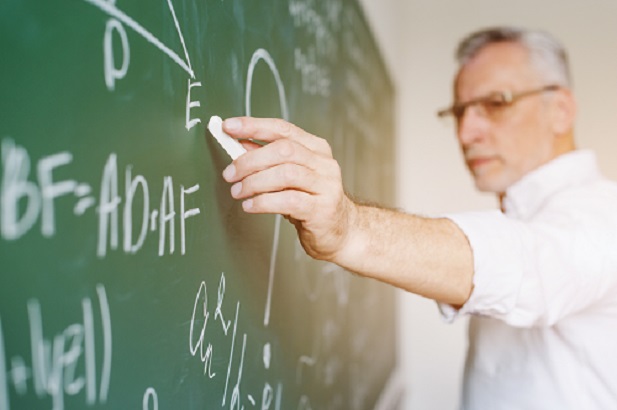The Essential Overview to Understanding Russian Math and Its Advantages
The expedition of Russian Mathematics presents an engaging choice to conventional instructional approaches, concentrating on crucial thinking and problem-solving as core components of mathematical knowing. This technique, rooted in the Soviet academic system, has actually gathered attention for its capability to grow durability and flexibility in trainees. As we analyze the fundamental principles and mentor approaches fundamental in Russian Mathematics, it ends up being apparent that its unique structure offers considerable advantages. Nevertheless, comprehending its real-world applications may reveal also deeper effects for the future of education and learning and professional proficiencies.
What Is Russian Mathematics?
Russian Mathematics, commonly defined by its focus on analytic and important reasoning, refers to a special instructional approach to maths that stem in the Soviet Union. This instructional structure is identified by its focus on creating deep mathematical understanding rather than memorizing memorization of treatments and solutions. The technique motivates students to engage with mathematical concepts via expedition and questions, cultivating a setting where students are encouraged to find services independently.

This method not just improves mathematical capacities but also grows a state of mind geared in the direction of logical thinking, which applies in a variety of disciplines. Russian Math has gathered interest internationally, with parents and teachers seeking to embrace its concepts to enhance mathematical education and learning and create crucial thinkers equipped for future challenges.
Trick Principles of Russian Mathematics
Central to the efficiency of the Russian Math approach are several crucial principles that differentiate it from standard mathematical direction. Among these concepts is the emphasis on problem-solving as a key method of learning. Pupils engage with facility, flexible issues that call for important reasoning and cutting-edge options, cultivating a deep understanding of mathematical concepts.
Another important concept is the assimilation of different mathematical disciplines. Russian Mathematics encourages links between calculus, geometry, and algebra, enabling trainees to see the relationships amongst various locations of math. This alternative view promotes adaptability in using mathematical knowledge to real-world scenarios.
Additionally, the educational program focuses on mental math and estimation abilities, which grow mathematical fluency and urge students to explore multiple methods for getting to a solution. This contrasts with rote memorization, permitting students to develop a strong user-friendly understanding of mathematical principles.
Advantages for Pupils
The unique principles of the Russian Mathematics strategy generate a plethora of advantages for pupils, improving their total mathematical proficiency and cognitive skills. By engaging content in problem-solving tasks that require logical and creative reasoning, pupils discover to come close to mathematical challenges from different angles.
In Addition, Russian Mathematics encourages a solid foundation in number sense, which is important for future my sources academic success. With a focus on mental computations and estimation strategies, students come to be proficient at evaluating the reasonableness of their answers and recognizing patterns. This foundational knowledge converts right into improved efficiency throughout all areas of maths.
Furthermore, the collective knowing atmosphere in Russian Math courses advertises efficient interaction and teamwork. Students learn to articulate their thought procedures clearly and to value varied point of views, improving their social skills alongside their scholastic ones. Inevitably, the benefits of Russian Mathematics expand past maths, furnishing students with vital life abilities such as strength, determination, and a growth state of mind, which are important in their instructional trips and future undertakings.
Training Methods and Techniques
Stressing active engagement, the teaching techniques and approaches utilized in Russian Mathematics promote a rich knowing atmosphere where pupils proactively join their own mathematical development. Central to this method is the use of analytical jobs that challenge trainees to think seriously and artistically. These tasks are often presented in a joint format, motivating peer discussion and exploration of varied techniques.
Direction is usually structured around a discovery-based version, where pupils are directed to uncover mathematical principles via real-world applications and hands-on activities. This method nurtures a deep understanding of mathematical concepts instead than rote memorization. Teachers play a crucial role as facilitators, prompting questions and directing pupils in their exploration instead of merely supplying content.

Real-World Applications

In different fields such as design, money, and innovation, the analytical skills sharpened via Russian Math function as very useful devices. Pupils find out to approach complicated problems systematically, damaging them down right into manageable parts-- a necessary skill in job monitoring and information evaluation.
Moreover, the focus on sensible reasoning cultivates a way of thinking for advancement and imagination. Students are prepared to deal with real-world issues, from maximizing manufacturing procedures to evaluating market patterns.
In addition, the collective facets of Russian Mathematics, typically carried out via team analytical, mirror the team effort needed in specialist atmospheres. This prepares trainees to effectively connect and work together, improving their employability in an affordable work market.
Inevitably, the real-world applications of Russian Mathematics offer students with a durable structure for not just academic success, however, for growing in numerous specialist landscapes.
Final Thought
In verdict, Russian Mathematics stands for a transformative educational technique that focuses on important and analytical thinking. Ultimately, the principles and methods of Russian Math contribute substantially to the growth of innovative and resistant thinkers.
In Russian Math, the curriculum is developed to challenge pupils at different levels, advertising advanced analytical abilities and sensible reasoning. Russian Mathematics motivates links between algebra, geometry, and calculus, permitting pupils to see the connections among various locations of mathematics.The unique principles of the Russian Math approach produce a wide range of advantages for students, boosting their total mathematical proficiency and cognitive abilities. Ultimately, the benefits of Russian Math prolong beyond maths, furnishing pupils with essential life abilities such as durability, willpower, and a growth way of thinking, which are vital in their educational trips and future endeavors.
Stressing active interaction, the teaching methods and approaches employed in Russian Mathematics cultivate a rich learning setting where trainees proactively take part in their very own mathematical advancement. (Russian Math Tutor)